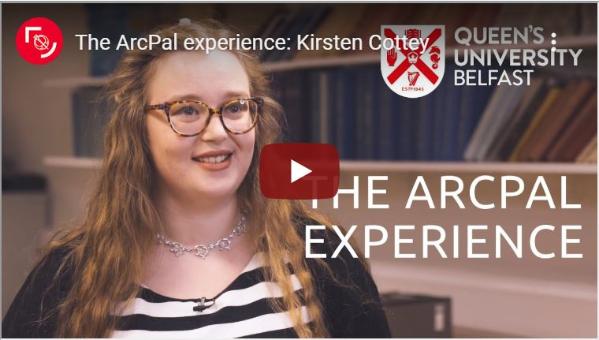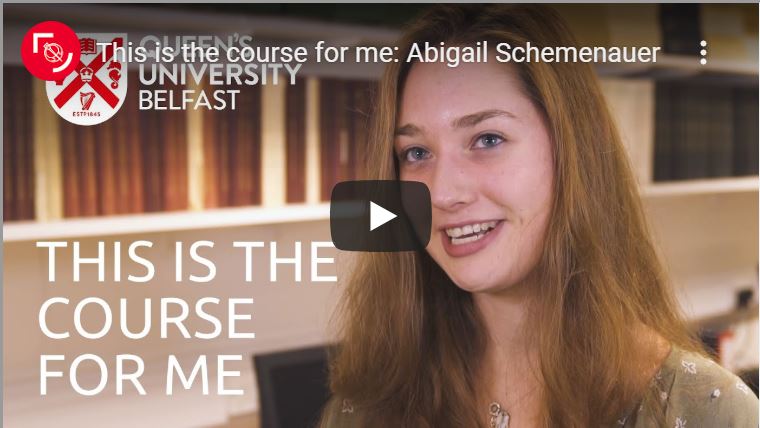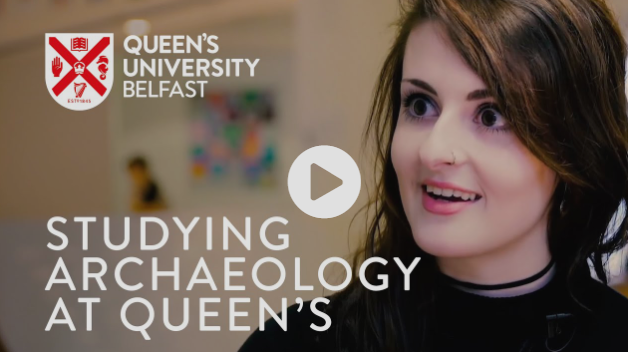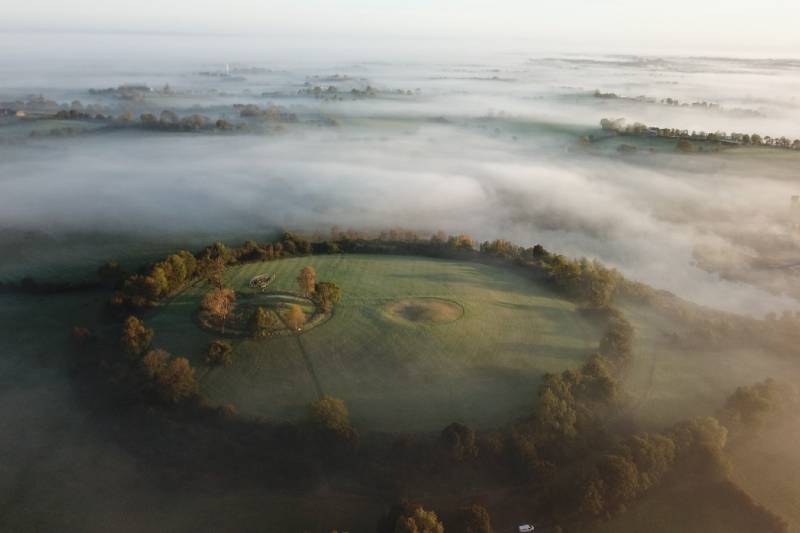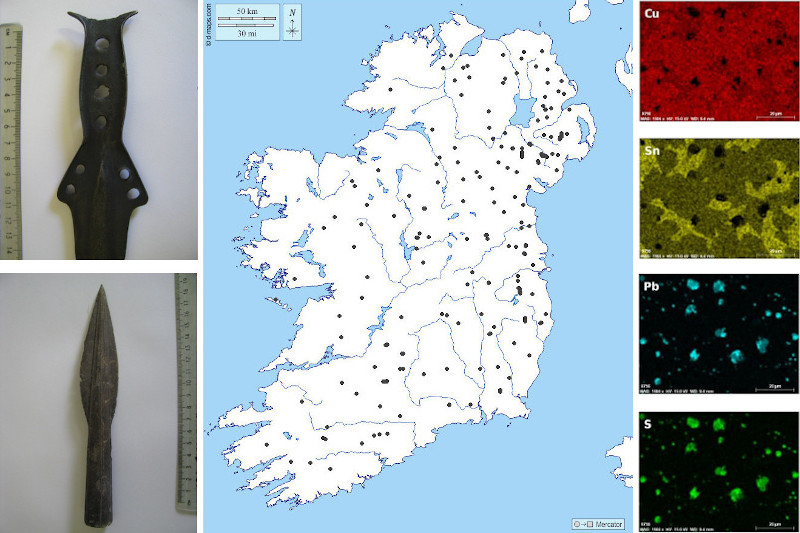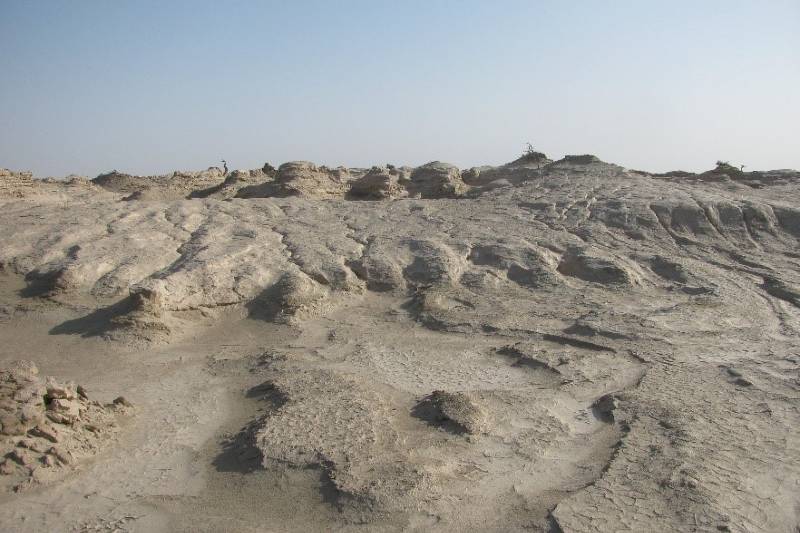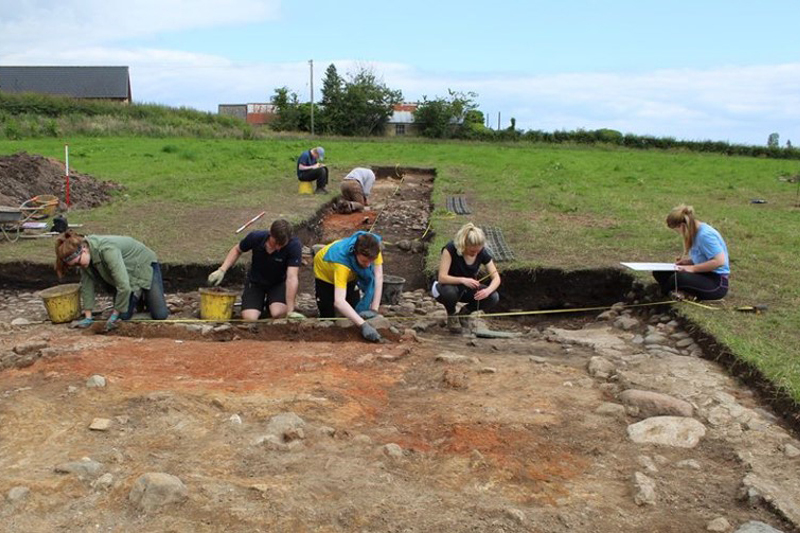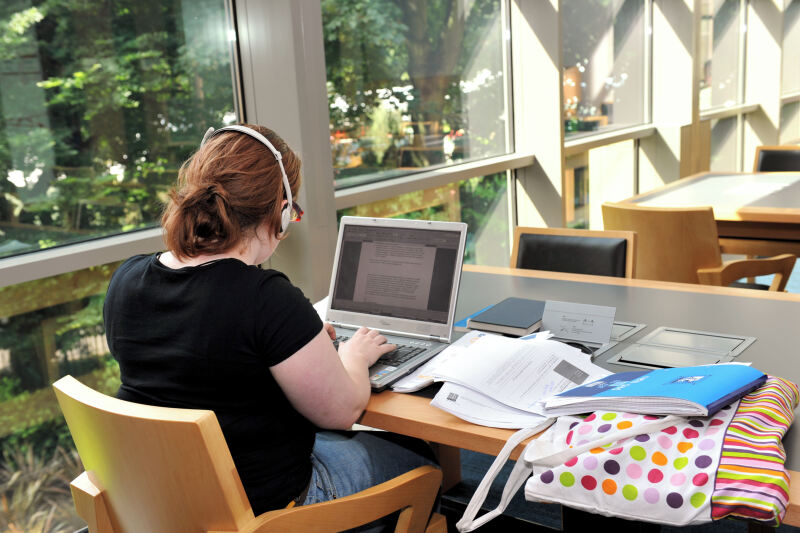Archaeology and Palaeoecology
for Student Satisfaction
Complete University Guide 2025for quality of teaching
National Student Survey 2025Overall for Archaeology
Complete University Guide 2025Is civilisation on the road to collapse? We can find solutions in our past. Study Archaeology and Palaeoecology at Queen’s.
A unique combination of cutting-edge archaeological approaches underpinned by state-of-the-art palaeoecological and chronological research.
Archaeology was established as a department at Queen’s University Belfast in 1948. In 1968, pioneering work in Palaeoecology began at the Nuffield Research Unit, which in 1985 became the Palaeoecology Centre. Today Queen’s Archaeology & Palaeoecology is recognised as an international leader in these fields.
Our discipline encompasses both the Sciences and Humanities. We undertake cutting-edge research on societal and environmental change in the past and explore their impacts on life today. Our expertise in heritage management, scientific, community and digital archaeology is complemented by ground-breaking palaeoenvironmental and chronological research, and supported by the Centre for Archaeological Fieldwork, the Centre for Community Archaeology and the 14CHRONO Centre.
A scientifically informed understanding of the past significantly informs the present and guides us towards a more sustainable future. Archaeology & Palaeoecology is where you will find a future in the past!
ARCHAEOLOGY AND PALAEOECOLOGY RESEARCH
Archaeology studies the development of humanity by examining surviving material remains (e.g. tombs, temples, settlements, skeletons, artefacts and the landscape context from which they were recovered). Through the information gained it is possible to trace our economic, cultural, social and spiritual developments through time. At Queen’s, Palaeoecology complements Archaeology by studying the nature and timing of environmental changes in the past, including climate change. This brings a highly integrated approach to assessing how human activities have been shaped by and, in turn, have impacted upon the natural environment and a means to disentangle human impact from natural variability.
Although, by their very nature, Archaeology and Palaeoecology are concerned with the past, both disciplines have a role in the present, as well as the future. The threats to our environment and landscape through urban, industrial and agricultural development have never been greater. Globally, archaeological and environmental heritage is at threat from conflict and climate change. Archaeologists and palaeoecologists are at the forefront of the preservation and management of cultural evidence from the past – monuments, artefacts and landscapes, while increasingly work in this field also incorporates attention to ecological conservation. The past is also relevant to how people construct identities in the present and many of the careers available for archaeologists and palaeoecologists stem from the need to evaluate and manage the different dimensions of this heritage.
While Archaeology & Palaeoecology has a long tradition of researching Irish archaeology, our staff are also involved in projects across the globe, in Africa, Asia, the Americas and Europe. Our work stretches from the time of early hominins, hundreds of thousands of years ago, right up to the twenty-first century. Staff have a diverse range of research interests, including prehistoric stone technology and metalworking; medieval buildings; human and animal bones; tree-ring dating; pollen analysis; tephrochronology; childhood in the past; trading networks and migration, heritage management, and computational approaches to Archaeology and Palaeoecology including survey, mapping and remote sensing. Our graduates are equipped with a diverse subject-specific and generic skill-set that will enable them to successfully pursue careers in Archaeology & Palaeoecology in addition to many other fields, such as teaching, forensics or environmental work.
KEY RESEARCH PROJECTS
FIND OUT MORE
Research Expertise of Archaeology and Palaeocology Staff:
- Palaeoecology
- Later Prehistory
- Artefact Studies
- Medieval Archaeology
- Remote Sensing
- Historic Archaeology
- Archaeological Theory
- Neolithic Archaeology
- Physical Anthropology
- Copper Age to Iron Age in Eurasia
- Archaeology of Cult and Religion
- Early Medieval Settlements
- Archaeozoology
- Landscape Archaeology
- Human Osteoarchaeology
- Tephrochronology
- Radiocarbon Dating
- Stable Isotope Analysis
STUDY
RESEARCH CENTRES
OUR STAFF
| STAFF NAME | RESEARCH INTERESTS | |
| Dr Maarten Blaauw | Palaeoecology, statistical interpretation of proxy archives | maarten.blaauw@qub.ac.uk |
| Dr Dirk Brandherm | Later Prehistory, artefact studies | d.brandherm@qub.ac.uk |
| Dr Patrick Gleeson | Medieval archaeology, remote sensing | p.gleeson@qub.ac.uk |
| Prof (Emeritus) James Mallory | Archaeology and linguistics, Copper Age to Iron Age in Eurasia | j.mallory@qub.ac.uk |
| Prof (Emerita) Caroline Malone | Neolithic, archaeology of cult and religion | c.malone@qub.ac.uk |
| Dr William Megarry | Landscape archaeology, heritage management | w.megarry@qub.ac.uk |
| Prof Eileen Murphy | Human osteoarchaeology, archaeology of childhood | eileen.murphy@qub.ac.uk |
| Prof (Emeritus) Jonathan Pilcher | Cryptotephra; Palynology; Mid- to Late Holocene environmental change | |
| Dr Eóin Parkinson | Human bioarchaeology, megalithism and ritual in prehistory | e.parkinson@qub.ac.uk |
| Prof Gill Plunkett | Palaeoecology, pollen and plant macrofossil analysis, tephrochronology | g.plunkett@qub.ac.uk |
| Dr Ryan Rabett | Palaeolithic, Southeast Asian archaeology | r.rabett@qub.ac.uk |
| Prof (Emerita) Paula Reimer | Radiocarbon dating, stable isotope analysis | p.j.reimer@qub.ac.uk |


